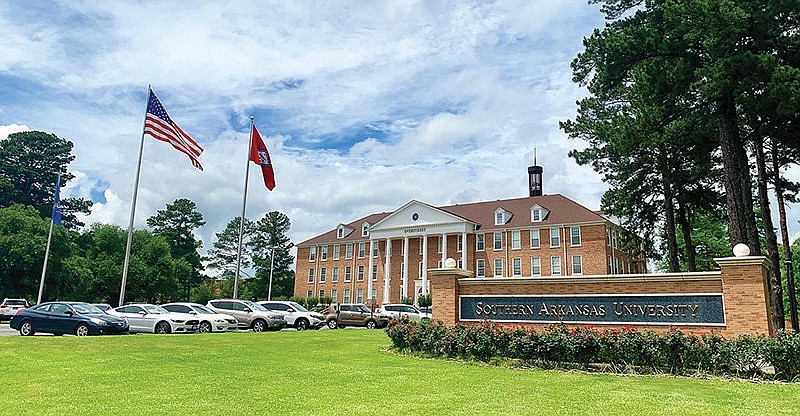Two more Arkansas universities and a community college have joined the ranks of institutions that won't increase tuition or fees for undergraduate students, while simultaneously reducing their operating expenses by several million dollars.
Southern Arkansas University will, however, raise tuition $4 per credit hour for in-state graduate students, to $284, and $6 per credit hour for out-of-state graduate students, to $446. The 4,500-student university's graduate student population has declined in recent years, even as overall enrollment has increased.
Rates will remain the same for undergraduates at SAU and all students at Southern Arkansas University Tech community college and Arkansas Tech University, trustees for the schools decided at meetings Thursday.
Many schools across Arkansas and the nation are holding tuition steady and reducing expenses. The moves are designed to avoid exacerbating the financial struggles of students and their families because of the coronavirus pandemic, and to account for a potential drop in state appropriations and enrollment related to the economic downturn.
At the same time, the strategies present a challenge to institutions that, like nearly all nationwide, have relied on increasing tuition and fees to keep up with rising costs since the last recession. Without raising tuition and fees, schools have had to find other ways to increase revenue and cut costs.
For both Southern Arkansas University and Arkansas Tech, students living on campus will pay more, and employees will face new financial burdens of their own.
Both universities will raise room and board rates, as they prepare to award credits for the spring's room and board payments to students returning to campus housing this fall.
Housing rates will rise 3.2% at Arkansas Tech, and meal plans will cost 4% more.
At SAU, leaders anticipate fewer students signing up for housing, choosing to commute instead, meaning the university would collect even less in revenue on top of awarding the credits. There, housing rates will rise 3.5% for traditional residence halls. Meal plans will cost, on average, 3% more.
Both universities lost money this spring because of a reduction in state general revenue appropriations -- $1.5 million at Arkansas Tech and $2.4 million at SAU. Next year's budgets anticipate even less from the state. The budgets also account for lower enrollments expected during financially uncertain times.
Arkansas Tech, which enrolled nearly 12,000 students last fall, plans to spend $169.5 million next year, down from $173.1 million budgeted for this year, about a 2% decrease.
The university will spend less on maintenance and operations and cut auxiliary expenses, such as room and board, proportionate to enrollment declines. Additionally, the university will stop offering the Arkansas Public Employee Retirement System benefit to new hires.
Arkansas Tech also is offering "a voluntary furlough program or voluntary reduced time contracts" for next year. However, it will maintain full-time positions for faculty and regularly contracted staff.
"Finances are, and will remain for some time, the number one challenge on the higher education landscape," Arkansas Tech President Robin Bowen told trustees.
The drop in spending is more dramatic at SAU -- more than 9%. University leaders plan to spend $66.8 million next year, down from $73.7 million budgeted for this year, and they expect to break even.
The university maintains unrestricted reserves of about $4 million, representing about 7.7% of its $52.2 million planned education and general spending next year, or about a month of spending.
"It's incredible that you all were able to make cuts and balance the budget," Trustee Monty Harrigan said after hearing the university's budget presentation.
Still, a tight budget after the drop in state revenue this spring has prompted SAU President Trey Berry to request $400,000 from Arkansas' covid-19 rainy day fund. Berry wants to replace an old chiller that isn't properly air conditioning the campus's north side. Classes begin Aug. 11.
To save money next year, SAU will cut part of its budget with a 30-position hiring freeze, saving more than $1 million.
"This will adjust the workload of existing employees pretty significantly," said Shawana Reed, vice president of finance for SAU.
Saving about $1 million more by reducing "extra help" hirings also will increase employee workloads, she said. Extra help includes graduate assistants, students and others.
Reed told trustees that many extra-help workers are actually essential to campus operations, meaning university employees will have to take on additional responsibilities.
The university will increase salaries and fringe benefits for employees.
"We do try to preserve our people," Reed said.
At the same time, the university will contribute less to employee retirement plans and require them to pay more toward their health plans, offsetting the expense of salary and fringe benefit increases.
SAU also will reduce travel by 80% and supplies by 25%.

